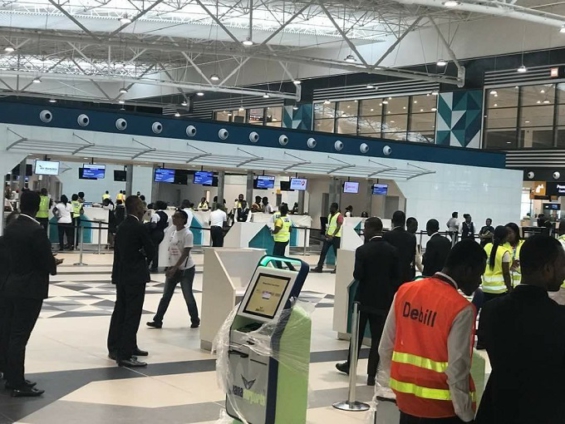The government of Ghana has placed a travel ban on Israel, South Korea,
and Malta commencing Monday, December 20.
According to the Ministry of Foreign Affairs and Regional Integration, the travel ban on Israel and South Korea will last 14 days. However, the ban on Malta is indefinite. This is in line with the government’s drive to control the importation of the Omicron variant of the Covid-19 into the country.
In the press release on the ban on Israel, the government stated that all travel to and from Israel is restricted “except in exceptional humanitarian cases or during official visits.” Israel on its part recently placed Ghana on the Red list of countries with the highest risk on its health travel notices and restrictions. The lists are updated and revised with infection rates.
In South Korea, the statement stressed “a temporary travel restriction on all travelers arriving from South Korea, from Monday, 20th December 2021 for a period of 14 days.”
Meanwhile on Malta, aside from the indefinite travel ban, the statement from the Foreign Ministry issued on Friday, December 17, 2021, also said Ghana does not recognize any of the Covid-19 vaccine certificates from Malta.
“To this end, the Ministry of Foreign Affairs and Regional Integration wishes to state that the general public should take note of the above and adhere to it accordingly,” it said. Presently, the active cases in Ghana is at 973 as stated by the President in his 27th address on the covid19 situation to the nation.
So far, 1,255 persons have succumbed to the disease and Ghana from an overall infection of 131,911 persons.
Last week, the Ghana Health Service declared December as the vaccination month in an effort to drive up the vaccination rate in the country, especially after the emergence of the Omicron Variant of the disease, which according to the WHO is very contagious and spreads faster.
The GHS efforts to ramp up the vaccination intake follows recent measures to tighten protocols at the Kotoka International Airport, where international arrivals are the highest source of infections of the coronavirus
in Ghana.
With a target to vaccinate 20 million of the population, the GHS has so far vaccinated about 7 million persons with about 13 million vaccines available in the country.





